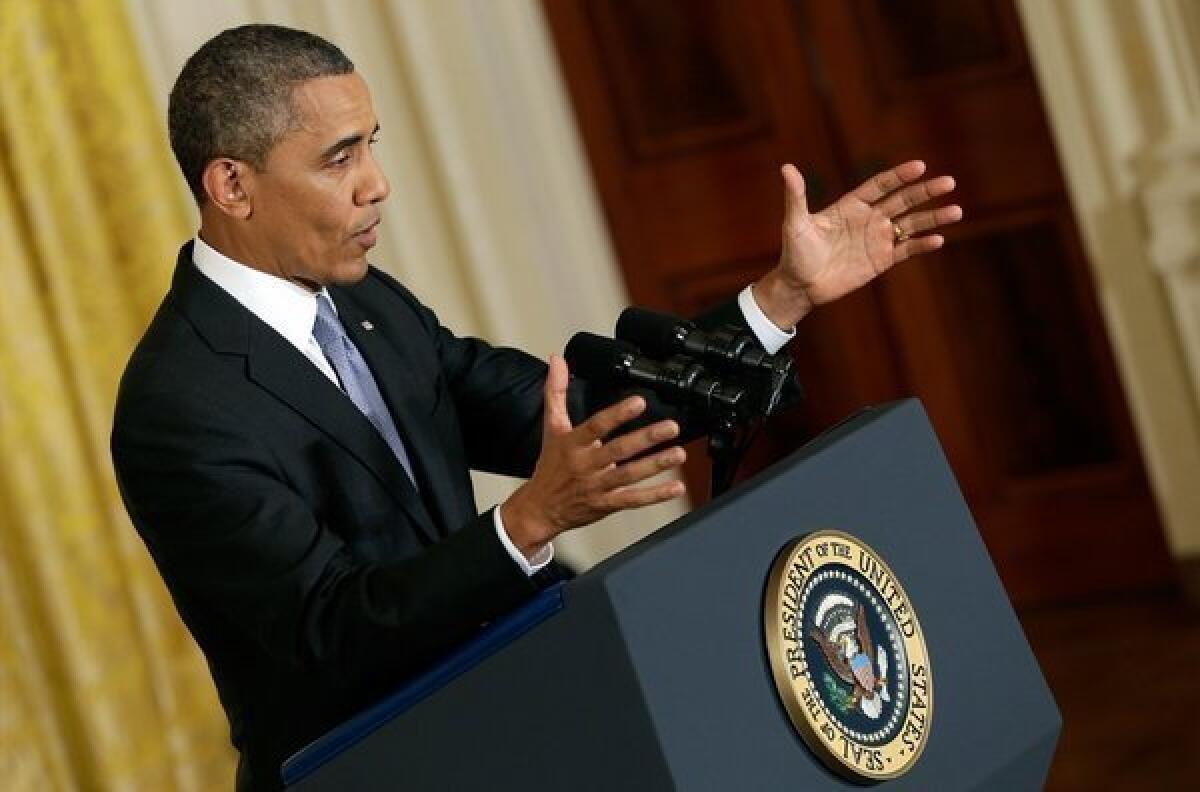Obama moves on surveillance reform -- but disses Snowden

- Share via
President Obama announced at a news conference Friday that he was prepared to work with Congress to introduce greater transparency and accountability to the National Security Agency’s electronic surveillance programs. Just don’t call it the “Snowden effect.”
Obama insisted, rather defensively, that he had called for a reappraisal of the programs before the man he once called a “29-year-old hacker” spilled the beans. Besides, he said, Edward Snowden could have gone through channels if he wanted to blow the whistle on what he thought was improper snooping. In the next few days, journalists will be flyspecking that assertion.
Snowden’s most sensational disclosure was that the NSA, with the approval of the Foreign Intelligence Surveillance Court, was using the “business records” section of the Patriot Act to scoop up the telephone “metadata” of virtually every American. (“Metadata comprises records of numbers called and the duration of calls, but not the contents of conversations). That so-called bulk collection was possible under a breathtakingly broad interpretation of what information was relevant to “an” investigation.
Obama said he would work with Congress to reform that process, but he didn’t commit to abandoning bulk collection of metadata.Yet that is what his most fervent critics are calling for on the grounds that, compared with the monitoring of the communications of foreigners outside the U.S., the metadata program hasn’t been that useful in detecting terrorist plots.
The president did accept some other ideas floated by critics, including the appointment of a lawyer to play devil’s advocate when the government sought the approval of the surveillance court for surveillance programs and the declassification of documents, including judicial opinions providing the legal rationale for NSA data collection. He also said he would appoint an outside group to review surveillance laws.
Welcome as these initiatives are, they still don’t commit Obama to major changes in the way the NSA operates. But the more the public knows about the reach of what critics call the “security state,” the likelier it is that Congress will seriously rein in it and that Obama will acquiesce. At least we can hope so.
ALSO:
Memory lapses? Forget about it
The Bible’s case for immigration reform
More to Read
A cure for the common opinion
Get thought-provoking perspectives with our weekly newsletter.
You may occasionally receive promotional content from the Los Angeles Times.







